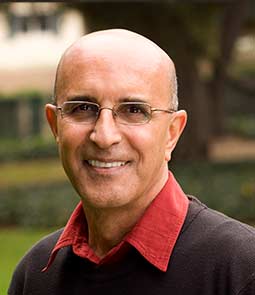When was the last time you looked at something and everything else you were thinking faded away? You were solely focused on what you encountered. That is awe.
This happens to my youngest grandson, Judah. You should see the look of awe on his face when I let him open the garage door by pushing a button. He’s only a year old. He doesn’t comprehend the mystery behind a garage door-opener—How pushing a button sends an electrical current through a thin wire that triggers the mechanism designed to open or close the garage door. As a grandpa, I benefitted greatly from Judah’s moment of awe. That mysterious act momentarily creates a sense of self-forgetfulness in Judah, and whatever is bothering him is put aside, leaving him with peace.
Awe is so powerful that even scientists have been studying it. According to Dr. Dacher Keltner, a psychologist at the University of California and the author of the book Awe, awe takes place when we encounter vast mysteries that we can’t understand with our current information, so we are required to rearrange our knowledge structures just to make sense of what we’ve encountered. Awe connects us to collectives — When we experience it, we feel small and part of something greater, which is fundamental to our survival.
The self takes up many areas in our brains and consciousness. We’re always focused on our goals, on our status, on our aspirations, and on what we desire. Simply put, we are overwhelmed with self-interest. According to Dr. Keltner, by creating the “small self,” awe changes the sense of our own scale, our social behavior, and attitude toward others. Awe makes us realize how insignificant we are in this universe.
Like many evangelicals, for most of my Christian life, I believed the Bible covered everything there is to know about God, and my correct theology took every mystery out of the Creator of the universe. I was not aware that mystery creates awe. My ability to explain things away and demystify God put me in control. With my arrogant approach, I’d made a god void of mystery, which was nothing but a recipe for a spiritual vacuum.
Speaking about a lack of comprehension of the words supernatural/mystery in today’s culture, in her book Silence, Maggy Ross says,
One cannot help but wonder if the current fascination with the occult has arisen because religion (Christianity) has become so banal, having excised both mystery and beauty, formerly two of its most important elements.
Is it possible when, in Luke 10:41-42, Jesus rebuked Martha, saying, “Martha, Martha, you are worried and upset about many things, but few things are needed — or indeed only one. Mary has chosen what is better, and it will not be taken away from her”, the better thing was standing in awe of Jesus rather than seeking significance and approval in doing things?
When was the last time you stood in the awe of your Creator?



Thank you for the awe-some reminder of why worship of God is essential for me to really see and love anyone beyond my fractured and darkened self-image!
Corey, thank you for not only reading my post but also connecting on it.